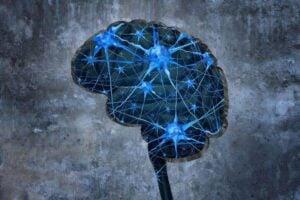
West Virginia Rapid Detox and Drug Treatment Options
Explore top-rated detox treatments in West Virginia, including specialized rapid detox programs and fentanyl addiction recovery. Discover why many West Virginians choose the renowned Waismann
Dive deep into the realm of substance use disorder (SUD) treatment, an endeavor that shines a beacon of hope for recovery and enhanced well-being. Acknowledging the multifaceted nature of SUDs alongside the critical importance of tailored treatment plans is the inaugural step on the path toward reclaiming your freedom and attaining comprehensive health.
Millions worldwide are ensnared by the tenacious grip of substance use disorder, a condition marked by an overwhelming compulsion to consume substances, despite the stark repercussions on personal health, relationships, and daily functioning. This disorder manifests in a broad spectrum of forms, including:
Addressing each instance of SUD demands more than just immediate intervention; it calls for a deeply empathetic and informed approach to treatment. The complexity and pervasiveness of substance use disorders underline the necessity for diverse, adaptable treatment strategies, capable of meeting the varied needs of individuals on their journey toward recovery.
In navigating the challenges of SUD, we are reminded of the power of understanding, the importance of personalized care, and the potential for transformative healing. The path to recovery begins with the courage to seek help and the determination to pursue a life of freedom and well-being, supported by comprehensive and compassionate treatment solutions.
Speak Confidentially
with an opiate detox treatment expert.
Acknowledging the need for help is a monumental step in the journey towards recovery. Substance use disorders can profoundly impact physical health, mental well-being, and social relationships, making it crucial to seek professional guidance and support.
Selecting the right treatment facility or program is pivotal. Here are key elements to consider:
Detoxification is often the initial step in treating substance use disorders, designed to safely manage withdrawal symptoms as the body clears itself of substances. The importance of a well-managed detox cannot be overstated, as it lays the groundwork for a successful recovery journey.
For many, in-hospital medical detox presents the safest and most effective option. Here’s why:
Recovery extends beyond detoxification, encompassing therapy, support groups, and lifestyle changes. Engaging in a comprehensive treatment plan can address the underlying causes of substance use, equip individuals with coping strategies, and support sustained recovery.
The 2022 National Survey on Drug Use and Health (NSDUH) sheds light on the prevalence of substance use and mental health challenges across the United States. Here’s a closer look at the significant findings from the report, revealing the extent of these issues among Americans.
In a revealing snapshot of American life, the survey found that nearly 60% of individuals aged 12 and older engaged in the use of tobacco, nicotine vaping, alcohol, or illicit drugs over the past month. This figure translates to an astounding 168.7 million people, with alcohol consumption leading the way at 137.4 million people (48.7%). Tobacco product usage was reported by 50.9 million people (18.1%), nicotine vaping by 23.5 million (8.3%), and illicit drug use by 46.6 million (16.5%).
Looking at the past year, a striking 24.9% of this demographic (70.3 million people) used illicit drugs, with marijuana topping the chart as the most commonly used illicit substance.
The findings further highlight that 48.7 million people aged 12 or older battled a substance use disorder in the past year. This number breaks down into 29.5 million individuals with an alcohol use disorder and 27.2 million with a drug use disorder. Notably, 8 million people were grappling with both.
The mental health landscape is equally concerning, with almost a quarter of adults aged 18 or older experiencing any mental illness in the past year. This issue affected 59.3 million people, amounting to 23.1% of the adult population.
Among adolescents, 19.5% (or 4.8 million) faced a major depressive episode in the past year. The data on suicidal thoughts and behaviors paints a distressing picture: 1 in 20 adults had serious thoughts of suicide, with 3.8 million considering a suicide plan and 1.6 million attempting suicide.
The situation among adolescents is particularly alarming, with over 1 in 8 harboring serious thoughts of suicide. Approximately 1 in 15 made suicide plans, and nearly 1 in 25 attempted suicide over the past year.
These findings underscore the urgent need for comprehensive substance use disorder treatment and mental health support across the nation. It’s clear that addressing these challenges requires a concerted effort from healthcare providers, communities, and policymakers alike to provide the necessary resources and support for those affected.
Speak With an Addiction Specialist
Exceptional Care & Better Outcome. Get In Touch With Us Today!
Waismann Method® excels by customizing its approach to meet the unique needs of each patient, targeting the underlying issues driving addiction. Understanding that addiction often results from unresolved problems, our strategy focuses on addressing these root causes to mitigate the risk of relapse effectively.
Upon entering our program, patients are admitted to a fully accredited hospital under the care of our medical director. Here, they undergo comprehensive medical monitoring and individual assessment. This initial step is crucial for determining the most suitable substance use disorder treatment plan for each patient.
For some, the journey begins with an inpatient medical detoxification, a process where withdrawal symptoms are medically supervised and managed. This phase ensures patients attain physical stability in a controlled environment before moving on to the next stage of recovery.
In cases where rapid detox is the preferred method, patients experience a day of thorough pre-examinations and pre-medication in their private hospital room. By the second day, under the guidance of our anesthesiologist and medical director, patients are sedated, allowing them to comfortably sleep through the detoxification process and withdrawal syndrome. Following this procedure, an additional hospital stay provides the necessary medical support as patients enter the regulation phase of recovery.
The regulation phase is critical to the patient’s recovery, marked by a period of adjustment where patients may feel temporarily unwell. The Waismann Method® extends the recovery process to Domus Retreat, our exclusive recovery center, where patients receive continuous support from experienced professionals. This attentive care helps manage physical discomfort and emotional triggers, significantly enhancing the recovery experience. Guests at Domus Retreat report noticeable improvements every few hours, emerging from a brief recuperation period stronger and ready to embrace a healthier life.
Through each step of the Waismann Method®, from hospital admission to the nurturing environment of Domus Retreat, patients receive the focused, compassionate care necessary for a successful and enduring return to health.
Embarking on the journey to overcome substance use disorders (SUDs) is a profound step toward reclaiming one’s life. This process often brings up numerous questions about the road ahead. Understanding the medical underpinnings of addiction, the impact on the nervous system, and the treatment options available can provide clarity and confidence as individuals navigate their path to recovery. Here, we address some of the most common questions encountered during this transformative journey.
Yes, SUDs can be effectively managed. Advances in neuroscience have led to a better understanding of how substance use alters the nervous system, including changes to neural pathways and neurotransmitter systems. This knowledge has fueled the development of targeted treatments that address both the physical dependency and the psychological aspects of addiction, offering a holistic approach to recovery.
Detoxification is the first critical step in addressing physical dependency on substances. It involves the body processing and eliminating substances, which can affect the nervous system significantly. During detox, individuals might experience a range of withdrawal symptoms, which can vary in intensity based on the substance, duration of use, and individual health factors. Under professional medical supervision, the detox process is managed with the utmost care to ensure safety and minimize discomfort. Treatments may include medication to ease symptoms, supportive care to address nutritional and hydration needs, and constant monitoring to swiftly address any complications.
Understanding the nervous system’s role in addiction and recovery is crucial. Substance use disorders can disrupt the normal functioning of neurotransmitters and neural circuits, leading to changes in behavior, thought patterns, and physical health. Effective treatment programs focus on restoring balance to the nervous system, using a combination of medication, therapy, and lifestyle adjustments. This comprehensive approach aids in alleviating withdrawal symptoms during detox and supports long-term recovery by promoting healthier neural functioning.
The journey to recovery from substance use disorder is unique for everyone but grounded in the common goal of achieving a healthier, substance-free life. By seeking out accredited treatment programs, engaging with board-certified medical professionals, and understanding the process of detoxification and its effects on the nervous system, individuals can navigate the path to recovery with informed confidence. Remember, recovery is not just about overcoming physical dependence; it’s about rebuilding a life of wellness and fulfillment.
What's New at Waismann Method®

Explore top-rated detox treatments in West Virginia, including specialized rapid detox programs and fentanyl addiction recovery. Discover why many West Virginians choose the renowned Waismann

Over the past two decades, the dramatic increase in opioid prescriptions has resulted in a significant rise in their adverse health effects. Often prescribed for

Pain management is a critical component of healthcare, particularly when addressing conditions that involve both pain and inflammation. Two commonly used medications in this regard

We are available 7 days a week
Get Newsletter Updates from Waismann Method®
"*" indicates required fields
DISCLAIMER: The text presented on this page is not a substitute for professional medical advice. It is for your information only and may not represent your true individual medical situation. Do not hesitate to consult your healthcare provider if you have any questions or concerns. Do not use this information to diagnose or treat a health problem or disease without consulting a qualified healthcare professional. Be advised that Opiates.com articles are derived from various sources and may not reflect your own country’s regulations.